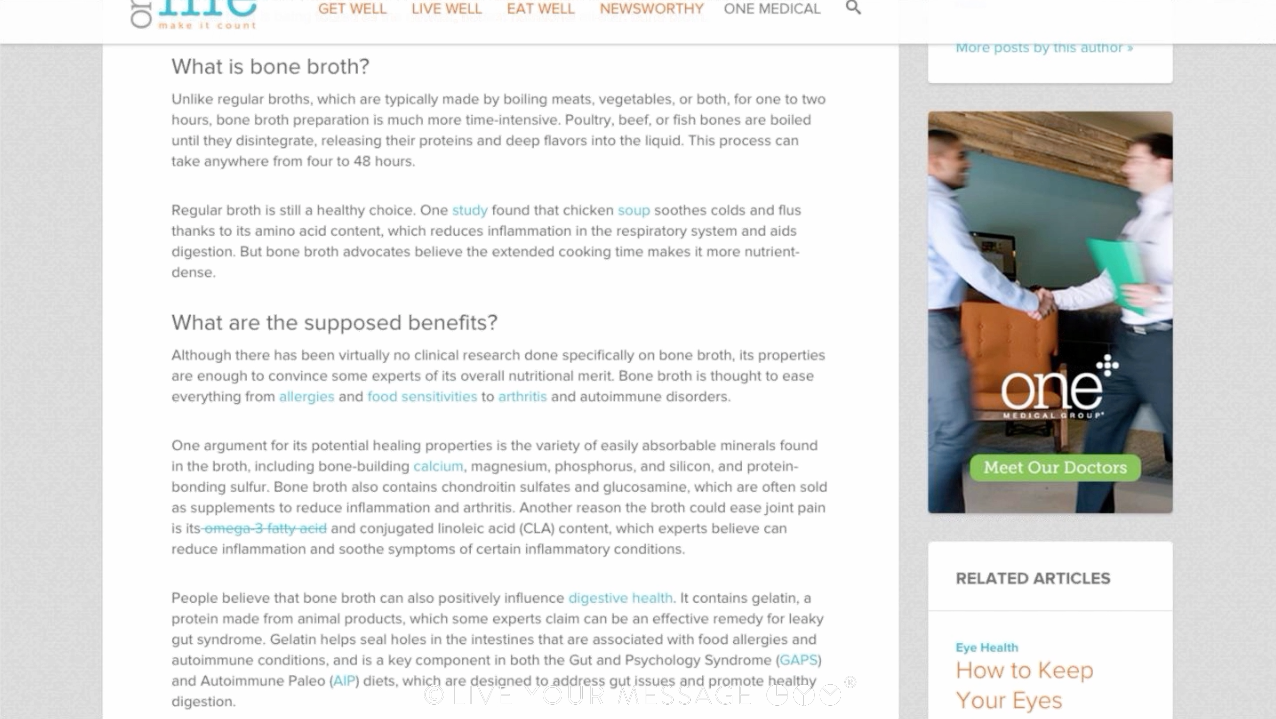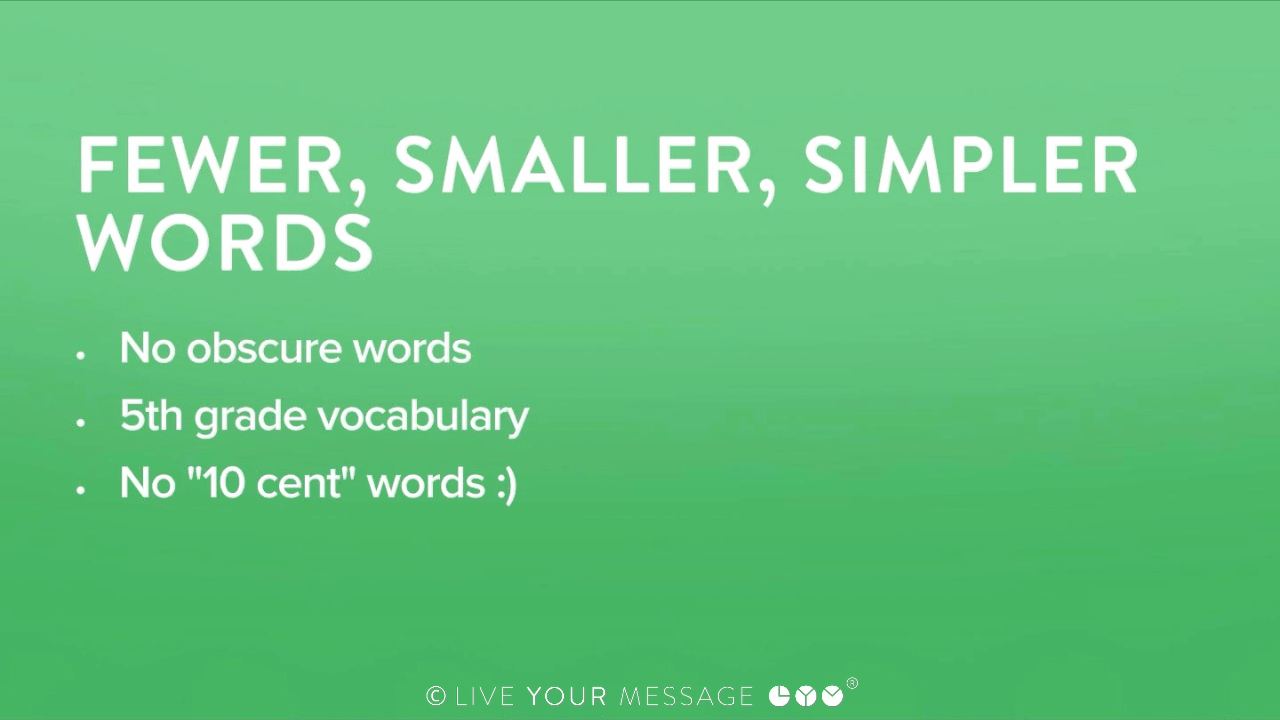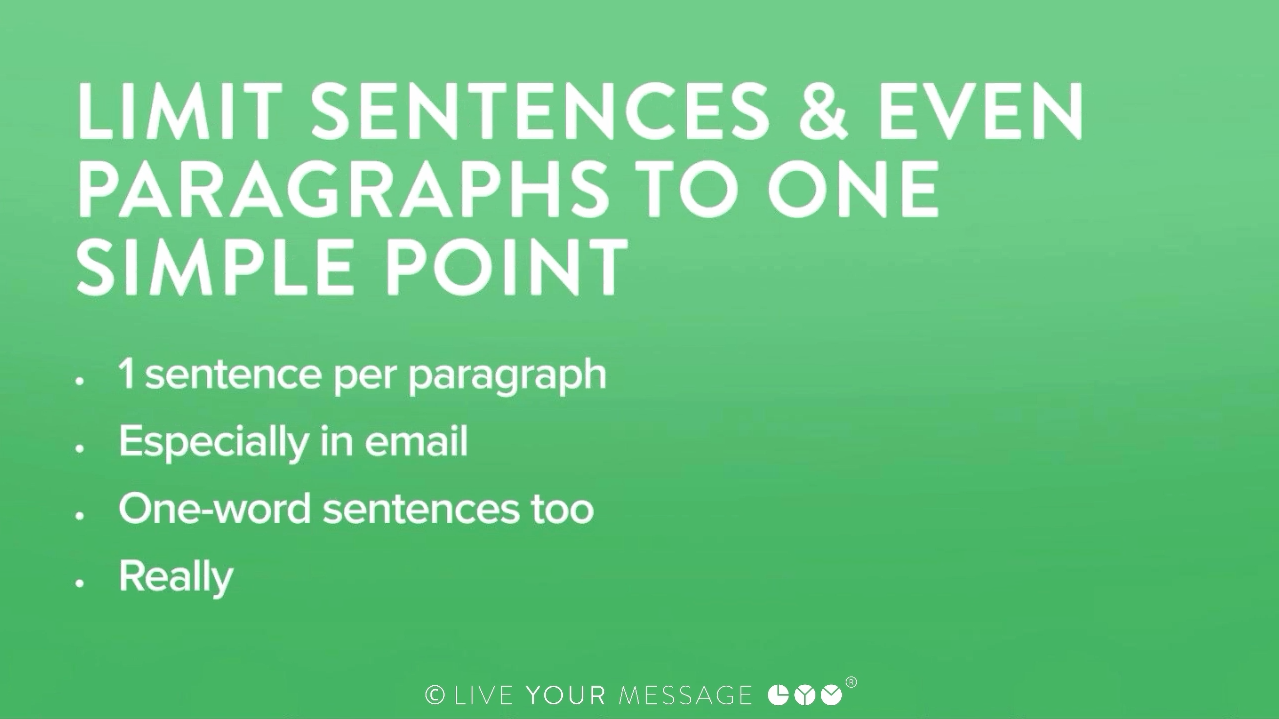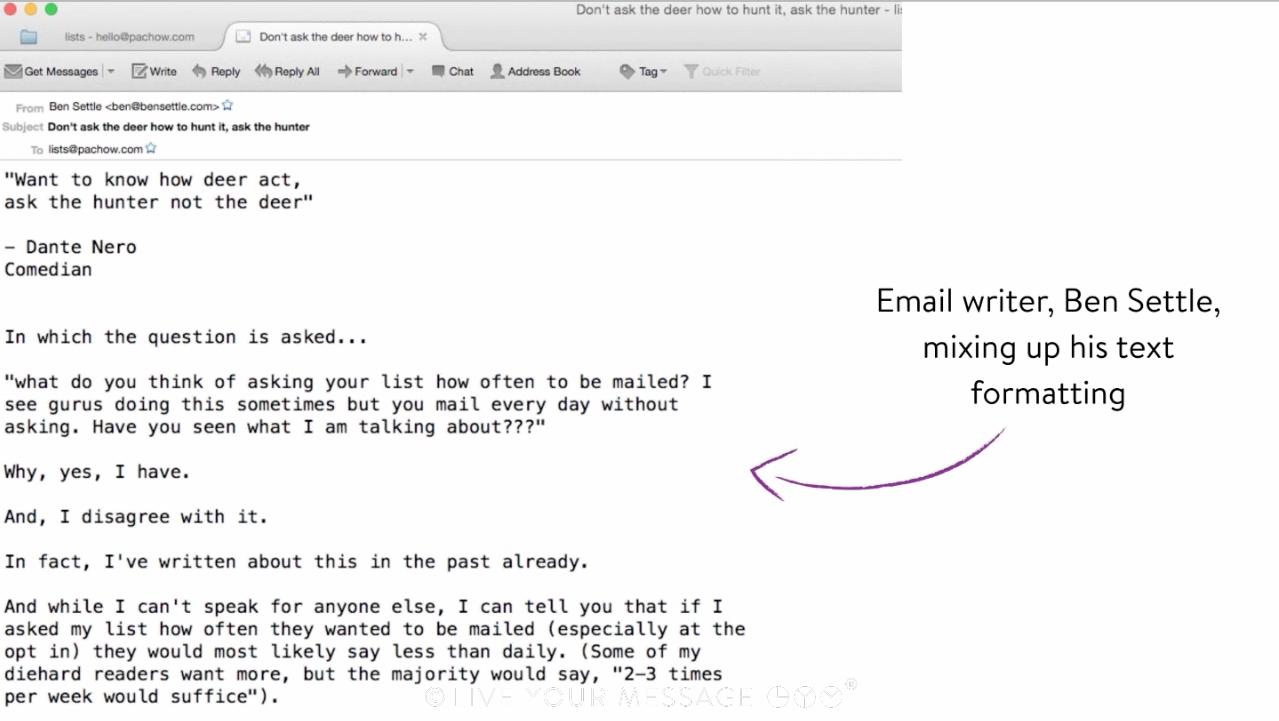I want to get started by talking about a problem I see all the time -- bad online writing.
And when I say "bad" -- I don't mean to imply you're a bad writer. Well, you may be, I don't know :)
When I say "bad writing" what I mean is Writing That Will Not Get Results Online.
The online space demands a radically different kind of writing than we learned in school.
So - let's dive into this with a quick real world example -- have you ever seen one of those long, rambly webpages? You know the ones I'm talking about right?

Where you work so hard to figure out what they're about... How to do business with them... What they're even offering... Who's got time to read that? You've already clicked the back button before the thought has even bubbled to the surface.
But people routinely stay on the sites that I write for double digit minutes -- which is huge. It's all about making your ideas more consumable and more understandable, and as a result easier to get excited about. If you can do that, you've given those people a huge gift of benefiting from what you do that they wouldn't have had before. And as a direct result of that, I guarantee that your website is going to perform measurably better.
With that in mind, and before I thrill you with the heavier copywriting stuff, I want to give you these pro writing tips I've figured out over the years.

- Use fewer, smaller, and simpler words.
Whether you're writing for professors or the general public, avoid the temptation to use an obscure word when a simple one will do. Obscure words will distract your readers. As a matter of fact, the MORE complex the idea, the more important it is to find a simple way to convey it.
In fact, many copywriters will tell you that that the best-performing copy is always written with a 5th grade vocabulary. So keep that in mind next time you're tempted to pull out one of your fancy 10 cent words.
- Beware of adjectives.
Adjectives are poison to your message and will set off your visitors' hype detectors faster than a HUGE SALE with the LOWEST PRICES EVER. Use a stronger noun if it means you can leave out an adjective. Getting people to take action to avoid a "crisis" is always easier than a "severe problem". And that brings me to my next point --
- Use "power words."
A power word is any word that carries its own emotional punch. No one reads a good power word without having their heart beat a little faster, their mind explode with old memories, or at least some tiny part of their brain taking note.
There are almost no adjective power words.
Take the word "busted."
No-one reads or hears that word without having a visceral reaction to it. Everyone's been busted doing something embarrassing at some point and felt humiliated.
Whoa! There's another one. Humiliated.
So when I write a headlines or email subject lines, I try to always include a power word where possible.
Even just using a few well-chosen power words in your copy, here and there, will instantly increase your reader's interest. It's the cornerstone of great, compact, intense writing that compels.

On the web, limit your sentences and even your paragraphs to one simple point.
And keep those paragraphs short -- preferably just one sentence per paragraph. And in email, definitely limit your paragraphs to 1 sentence. Hell - many times I even write sentences that consist of a single word.
Really.
No, it may not be grammatical, but if it gets the point across - then who cares? I'd rather get my stuff read, than be 100% grammatically correct.
So why do 1 word sentences help?
First of all - nobody has time to read big chunks of text that feel like we're wading through treacle.
Ever hit a page like that, that's just so text heavy you don't know where to begin? So, in most cases, you don't. You just hit the back button. And if the page is especially important, or it's an article or something you actually want to read, you'll bookmark it into a folder called "One Day" that you will never ever open again.
So don't do chunky, dense text.

Instead, mix up the density of your writing so that it's interesting to the eye. So it's easy to scan through and you can keep your readers' eyes moving down the page.
Easily.
Quickly.
Point by point.
It gives them the sense they're making progress. It keeps them engaged and understanding what you're talking about.
Be conversational, be yourself, and tell stories.
People want to hear from a real person with a real personality. If you're dry or boring, no one will pay attention to you. If you're too general or too formal, we're not going to connect with your humanity. Keep it interesting and keep it real.
Here's a recent post Marisa wrote on her Live Your Message blog where she tells the story of the first email that I ever sent her. She quotes part of that email (which was a story too), and also lists out some of the email subject lines that I used in other emails. It's such a great example of being real, showing her (and my) personality, and being conversational, that it's had more than 150 likes on this post in just a few weeks.
End everything you write with a strong, compelling call to action.
Always Always Always letting people know exactly what to do next or how to take action is the most overlooked part of writing for the web. Don't assume that your reader will just figure out what to read next when they get to the end of your page.
You MUST direct them to the next action or thing you want them to do.
It can be as simple as a link that says "Read more".
Or it can be as specific as "Leave your name and email address for instant access to this special report."
Or "For more information, check out our blog post on the 7 deadliest internet marketing sins."
I once had a website for a marketing innovation company called Pachow! All of the blog posts are based on the concept of stealing brilliant ideas across industries to use in your business, so each blog excerpt ends with the call to action "STEAL THIS!"
If you practiced these 6 tips alone, you'd notice immediate boosts in engagement, interest and excitement from your readers. You'll be seeing more comments on your posts. Longer website visits. More signups and more sales on your products. The more you practice, the better you'll get and the better the results.
